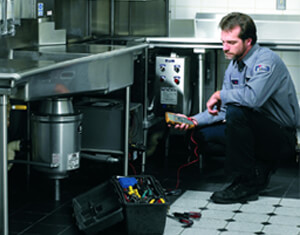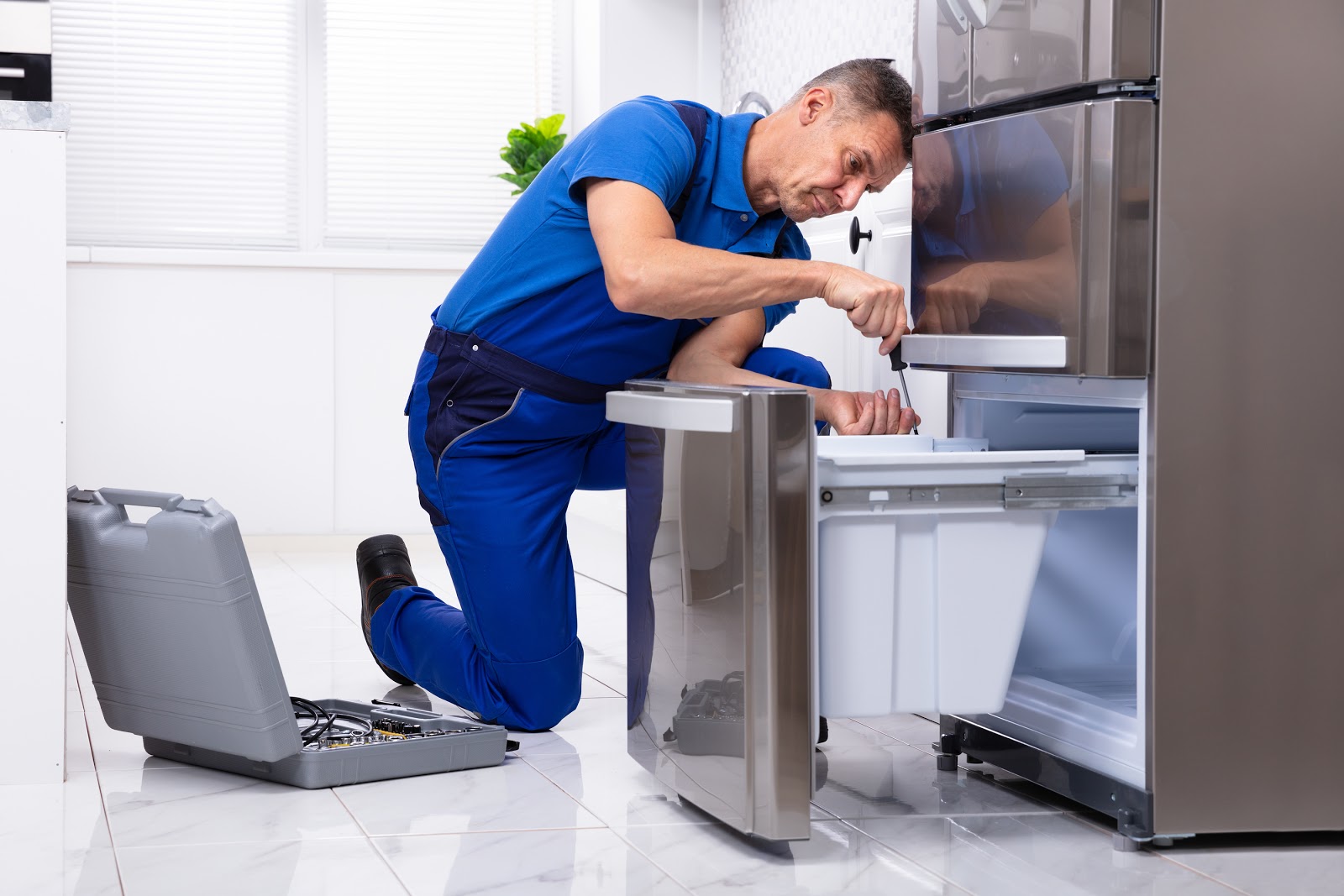Beat High Energy Bills with Dependable Refrigeration & Appliance Repair Refrigerator repair specialist of Oro Valley's Expert Advice
Beat High Energy Bills with Dependable Refrigeration & Appliance Repair Refrigerator repair specialist of Oro Valley's Expert Advice
Blog Article
Important Tips for Effective Ref Repair to Extend Home Appliance Life-span
When it involves your refrigerator, proper repair work and upkeep are essential for longevity. You might not realize how tiny problems can rise if they're left unaddressed. Regular check-ups and simple fixes can save you from expensive substitutes down the line. Understanding usual problems and recognizing when to act can make all the distinction. Let's check out some important tips that will assist you keep your fridge running efficiently for years ahead.
Comprehending Common Fridge Issues
Fridges are necessary in maintaining your food fresh, yet they can run into a range of common troubles that interrupt their efficiency. One constant concern is insufficient cooling. If you notice food ruining quicker than usual, check the thermostat setups or consider if the door seals are harmed. An additional usual problem is extreme noise, which could show a malfunctioning compressor or a failing follower. You could also experience water merging inside or underneath the fridge; this typically results from a clogged up defrost drainpipe or a faulty water line. Additionally, if your fridge's light isn't functioning, it might be a simple light bulb issue or an issue with the door switch. Ice accumulation in the fridge freezer can impede air movement and cooling effectiveness. Identifying these concerns early can save you time and cash out of commission, guaranteeing your refrigerator runs smoothly and effectively.
Routine Maintenance Practices
To keep your home appliances running efficiently, you need to stay on top of regular maintenance techniques. Tidy the condenser coils, inspect the door seals, and monitor the temperature settings to assure peak efficiency. These straightforward tasks can conserve you money and time on repair work down the line.
Clean Condenser Coils Frequently
Cleansing your condenser coils routinely can substantially enhance your appliance's efficiency. Dust and dirt build up on these coils over time, triggering your home appliance to function more difficult and eat even more energy. To keep them clean, disconnect your home appliance and very carefully remove any safety covers.
Check Door Seals
3 straightforward steps can aid you ensure your home appliance's door seals remain in excellent condition. Initially, inspect the seals routinely for any type of splits, splits, or indications of wear. These damages can cause air leaks, impacting effectiveness. Second, clean the seals using cozy, soapy water to eliminate any type of particles or gunk. A clean seal guarantees a tight fit and better performance. Lastly, carry out a basic test by shutting the door on a notepad. If you can quickly draw it out without resistance, the seal may require replacing. By complying with these steps, you'll maintain your device's performance and long life, saving you money on power expenses and repairs in the lengthy run.
Monitor Temperature Setups
Consistently checking your home appliance's temperature level setups is necessary for ideal performance and efficiency. Utilize a thermostat to inspect these setups regularly, especially after significant modifications, like relocating your device or readjusting the thermostat. By staying aggressive about temperature level surveillance, you'll assure your home appliances run efficiently and last longer.
Fixing Air Conditioning Problems
When your refrigerator isn't cooling correctly, it can bring about spoiled food and squandered money, so resolving the concern without delay is critical. Start by inspecting the temperature settings to validate they're at the advised levels, usually around 37 ° F for the fridge and 0 ° F for the freezer. If the settings are appropriate, inspect the door seals for any type of gaps or damage; a defective seal can permit warm air to get in.
Inspect the condenser coils, usually situated at the back or base of the device. Clean them with a vacuum cleaner or brush to optimize efficiency. If problems continue, it might be time to call a specialist.
Taking Care Of Water Leakage and Ice Accumulation
If you're handling water leakage or ice build-up in your appliance, it's important to recognize the resource of the issue. By pinpointing where the water is coming from, you can avoid additional issues and stay clear of pricey repair work. Allow's explore some effective approaches to take on these usual issues.
Recognize Leak Sources
How can you efficiently determine the resources of water leak and ice accumulation in your home appliances? Start by checking the seals and gaskets on your refrigerator and freezer doors. A worn or damaged seal can enable cozy air to get in, triggering condensation and ice. Next off, examine the drainpipe pan and drainage system for obstructions or blockages; a backed-up drain can lead to water pooling. Look for any type of loose connections in the water supply line, which a fantastic read can produce leakages. Examine the defrost drainpipe for ice build-up, which could disrupt correct water drainage. By methodically checking these locations, you'll determine the source of the trouble, permitting you to take the necessary steps to repair it and expand your device's life expectancy.
Stop Ice Development
To stop ice formation in your devices, begin by validating the temperature setups are appropriate. If your fridge or fridge freezer is also chilly, it can cause extreme ice build-up. Inspect the door seals frequently; harmed seals can allow warm air in, triggering condensation and ice formation.
Maintain the device well-ventilated and prevent congestion, as this can obstruct air flow - Refrigerator repair experts Dependable Refrigeration & Appliance Repair. Also, consistently defrost your freezer if it does not have an automatic defrost attribute.
If you see water leakage, recognize and fix any kind of blocked drain holes, as they can contribute to ice accumulation. Finally, clean the coils and validate they're working correctly to maintain peak performance. Taking these steps will certainly help extend your home appliance's lifespan and efficiency.
Dealing With Noisy Refrigerator Sounds
While it may appear disconcerting, a loud refrigerator typically indicates small concerns instead than major malfunctions. First, determine the source of the noise. Typical culprits include the compressor, fans, and water lines. If you listen to a buzzing noise, it could be the compressor working hard; this can simply be a typical operation noise.
Next, look for loosened products inside. Sometimes, containers or shelves can rattle, creating undesirable noise. Tighten up or rearrange them to remove the sounds.
If you discover a clicking noise, it could be the defrost timer. This is normally harmless yet can suggest it requires examination.
Ultimately, verify your refrigerator is level. An unbalanced appliance can generate resonances and sound. Use a level to check, and readjust the feet if needed. Resolving these issues quickly can assist preserve your fridge's performance and lengthen its lifespan.
When to Change Parts vs. Complete Replacement

Consider the expense of fixings versus the device's worth. Additionally, if you discover continuous problems that maintain recurring, it's a sign that your home appliance has actually gotten to the end of its life.
Recognizing When to Call a Professional
Just how can you inform when it's time to call in an expert for appliance repair? If your appliance quits working altogether or frequently trips circuit breakers, it's one more red flag.
You ought to also consider your own comfort degree with fixings. If you're uncertain regarding detecting the trouble or do not have the right devices, it's ideal to connect for assistance. Remember, trying complex repair work can bring about more damage and even security risks.

Frequently Asked Questions
Exactly how Often Should I Clean the Fridge Coils?
You should cleanse your refrigerator coils every 6 months. This aids preserve efficiency and avoids overheating. If you see too much dust or pet hair, clean them extra often to ensure your fridge runs smoothly.

Can I Make Use Of Vinegar for Cleansing My Fridge?
Yes, you can make use of vinegar to clean your refrigerator! It's an outstanding natural cleanser that removes smells and discolorations. Who Repairs Dryers in Oro Valley? Dependable Refrigeration & Appliance Repair Service. Simply blend it with water, apply it to surface areas, and wipe down for a fresh, clean refrigerator
What Temperature Should My Fridge Be Set To?
You must establish your fridge to 37 ° F(3 ° C) for suitable food conservation. This temperature level keeps your food fresh while preventing wasting, guaranteeing your groceries last longer and decreasing waste. It's an easy adjustment you can make!
Does a Refrigerator Need to Be Leveled?
Yes, your fridge needs to be leveled. If it's unequal, it can impact cooling efficiency and create excess sound. Inspect the progressing legs and change them to assure correct balance for excellent efficiency.
How Can I Reduce Refrigerator Power Consumption?
To lower your fridge's power intake, keep it tidy and well-ventilated, check door seals for leakages, established the temperature level between 35-38 ° F, and prevent overwhelming it. These steps can significantly lower your energy bills.
Report this page